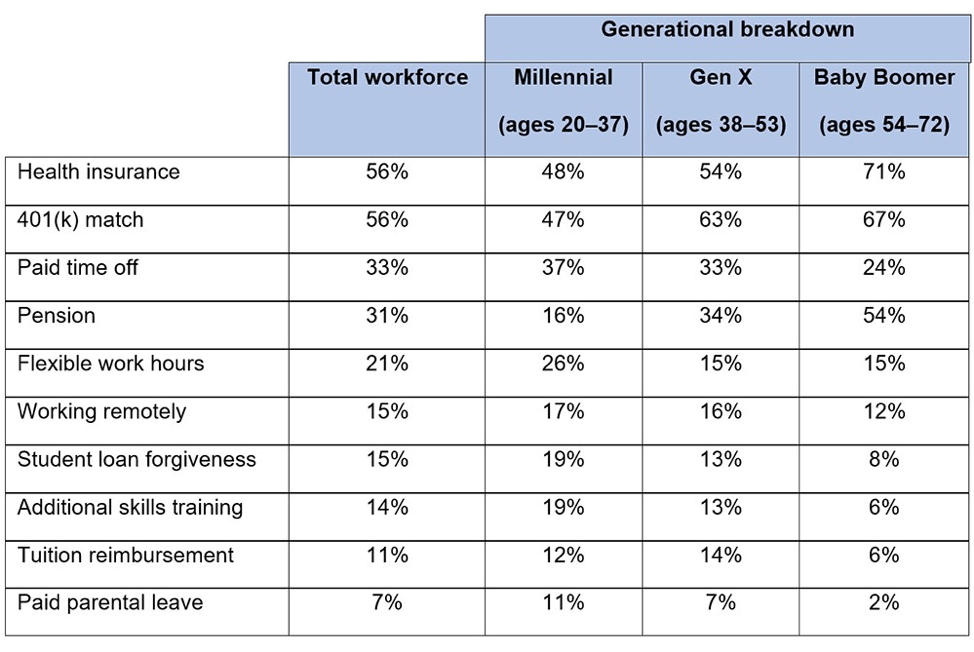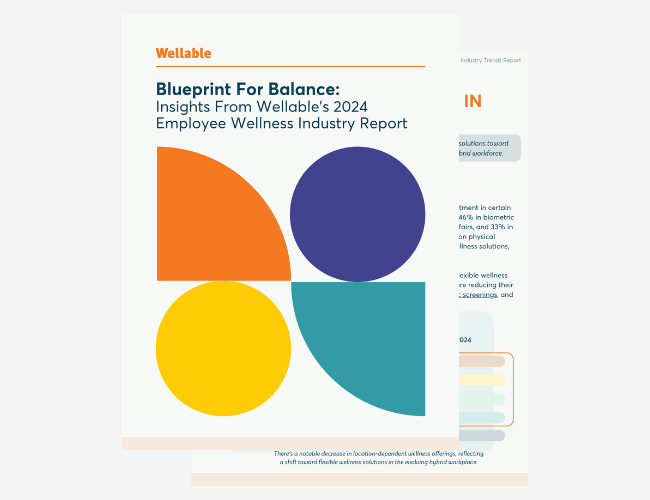A survey from the American Institute of CPAs (AICPA) showed that 80% of Americans would rather accept a job with benefits, such as health insurance and a retirement plan, than take a job without benefits, even if it paid 30% more. This is an important statistic for employers to consider as they finalize benefit plans for the coming year, especially with nearly three out of ten (29%) employees considering switching jobs in 2019.
Fortunately, the AICPA didn’t raise a red flag without providing some guidance on what benefits employees find the most financially beneficial. The survey respondents were also asked to pick three benefits from a list that they felt would most help them reach their financial goals. Across all generations, health insurance and 401(k) match programs were most frequently listed as benefits that most improve financial standing. Although, the importance of these benefits did vary by age, with significantly more respondents in older generations ranking these benefits as most helpful.

In lieu of traditional benefits like health insurance and 401(k) match programs, millennials valued emerging benefits as more beneficial. For example, millennials ranked paid time off and flexible work hours higher than members of Generation X and baby boomers. They also valued student loan forgiveness and additional skills training higher.
The survey also suggested that many employed Americans overestimate the value of their benefits. Respondents believed benefits made up about 40% of their total compensation, on average, whereas benefits only made up 31.7% of average annual compensation in 2018, according to the U.S. Bureau of Labor Statistics. Combined with 80% of Americans prioritizing benefits over salary, this statistic should make employers even more concerned. That is, employees still prefer benefits over compensation even when they overvalue their benefits.
On a positive note, the majority of respondents reported that they were not optimizing their benefits. Although nearly 90% of the employed respondents said they understood all of the benefits their employers offered them, only 28% said they were very confident they were taking full advantage of those opportunities. By helping employees make better benefit decisions, employers can increase the realized value of the benefits being offered without having to commit significant financial resources. This should help increase retention, and if marketed correctly, recruitment of new talent.












